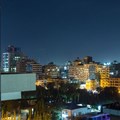The global upswing in economic activity is strengthening - economic growth is projected to rise to 3.6% in 2017 and 3.7% in 2018, driven by rising consumer and business confidence - according to the International Monetary Fund's (IMF) latest World Economic Outlook Report.
The question is how will this growth impact South Africa's travel and hospitality industry going forward?
Sigal Geva, COO at Premier Hotels & Resorts shares: “As global economic growth is currently being led by Japan, Russia, emerging European markets such as Hungary and Croatia, along with emerging Asian markets like India and China, we anticipate an increase in tourism from these countries. Furthermore, China is expected to become the country with the highest propensity for travel abroad by 2022 and one of our biggest source markets.
The easing of South Africa’s visa requirements has already seen enormous growth in Chinese visitor numbers and we foresee this to be a continuing trend. China is already the largest source of tourism expenditure in the world, with this set to grow by 10.9% over the next five years, propelled largely by GDP per capita and the increase in middle-class households.”
“On the other hand, with downward growth in the United States and the United Kingdom - due to the rocky Trump administration and Brexit - we believe that there may be a slowdown in tourists from these markets. That said, the rand’s devaluation has made South Africa a highly affordable, and therefore attractive travel destination,” adds Geva.
Prices impact decissions of travellers
With global economic growth gaining momentum, OPEC (Organization of the Petroleum Exporting Countries) predicts higher demand for its crude oil. This demand, in turn, influences oil prices which are expected to rise by 5% in 2018. Airline prices will consequently be affected, with a 3% increase predicted for air prices in the Middle East and Africa region. Geva says that this increase, which is slightly lower than the global projection of 3.5%, could possibly impact the decision of cost-conscious international tourists to visit South Africa, given the 0.3% increase forecasted for Latin America.
She continues: “They might be willing to overlook this, however, with hotel prices in the MEA region set to increase by only 0.6% in 2018, in contrast to the global prediction of 3.7%. PwC’s Hotels Outlook: 2017-2021 forecasts moderating growth in tourism to South Africa, with the result being the average daily rate rising from R1,160 in 2016 to R1,650 in 2021. The report also projects that despite the slowdown in tourism, guest nights will grow faster than room supply and the occupancy rate for hotels will rise to 64.3% in 2021.
Car rental prices will also be affected as the global industry improves, with market growth estimated at a compound annual growth rate of 5.5% from 2017 to 2022, fuelled by a broader economic recovery. In the New Year, the MEA region will see the price of car rentals, as well as ridesharing, increase by 1%.
“In 2018, global economic growth will see new markets being introduced to South Africa, taking advantage of relatively low price increases affecting our air travel, accommodation and road transport. Domestic tourism is also likely to flourish due to the global rise of travel and lodging prices far exceeding those in South Africa, coupled with the country’s depreciating currency. The growth of the global economy can help bolster the South African travel and hospitality industry and ultimately, our own economy,” concludes Geva.








































